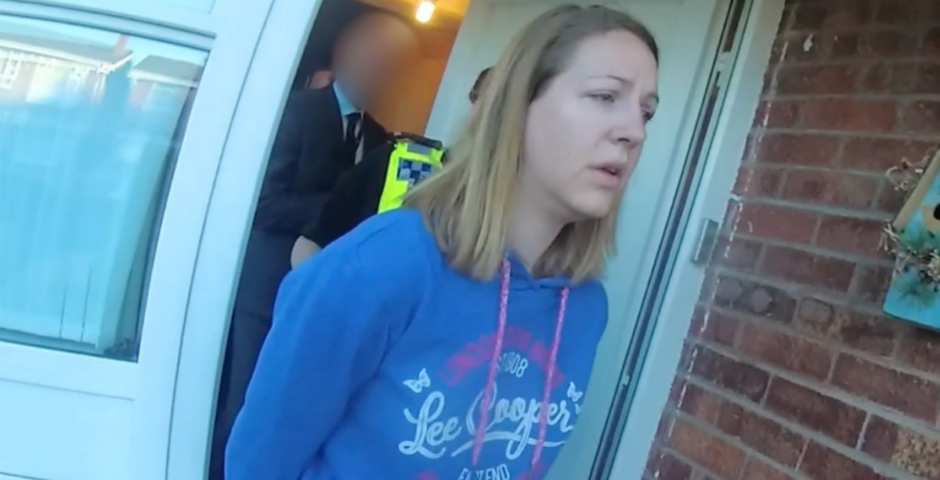
You are still here: Surviving Edinburgh university even while you’re struggling
Every day is one day further away from what happened to you.
TW: Sexual assault
This piece is for anyone moving through university with trauma. It’s for those surviving in silence, whether your pain comes from sexual violence, emotional abuse, domestic violence, grief, or something you’re not ready to name. You are not alone. Healing is always possible, and you deserve support no matter what you’ve been through.
Many people arrive at university already carrying too much, and some of us get hurt while we are here.
When it happened to me, I didn’t know how to process it. I didn’t know who to speak to, and I had no idea how to keep functioning day to day when everything inside me felt completely off balance. For a while, I told myself it wasn’t that serious, or that I was misremembering it. I blamed alcohol, blamed myself, anything to avoid blaming the man who ignored the word no.
Trauma doesn’t fit neatly into academic schedules. It doesn’t pause for deadlines or lectures. Some days I went to class, contributed, smiled, and acted like everything was fine. But I didn’t feel safe in classrooms, and definitely not in social settings. I was constantly on edge, trying to hold things together.
Most Read
Eventually, I told someone. It wasn’t a big announcement, but a quiet conversation with someone I trusted. It took months for me to find the words. I was afraid I’d be pitied or treated differently, but that didn’t happen. I do wish I’d spoken sooner, but I also recognise that I needed time to understand the impact of what had happened. Support doesn’t have to mean telling everyone. It might be one conversation, writing something down, texting a support line, or asking for an academic extension. You don’t have to go through it alone. You are not what happened to you. And the fact that you’re still here, finding a way to carry on, is significant.
The role of universities in mental well-being:
Whilst it is always important to reach out to friends, the problem with wellbeing on campus is much bigger than a personal problem; it’s an institutional one. In 2021, students organised protests demanding better mental health services and calling for increased funding, staffing, and transparency in how the university handles sexual violence.
The administration acknowledged the concerns. Lucy Evans, Deputy Secretary Students at the University of Edinburgh, said: “The wellbeing of our students is our absolute priority and we do not tolerate any forms of harassment in our community. Over the past few years, we have established a new student support model, including the introduction of a new Student Wellbeing Service to complement our specialist wellbeing services, and tailored our support offering so that we can adeptly respond to the needs faced by our community. We recognise that there are always ways that we can improve our support offering, and we continue to listen to our student body as we improve the Edinburgh experience for all.”
However, many students feel as though progress has been slow, and many of the same issues persist. Studies show that a significant number of students experience sexual violence or trauma during their time at university, highlighting the urgent need for effective support systems.
When universities fail to provide adequate resources, students often face worsened mental health, higher dropout rates, and a loss of trust in the institution meant to protect them. Structural change could include confidential and trauma-informed reporting systems, faster access to counselling, and ongoing training for staff and faculty to handle disclosures with sensitivity and respect.
Without these changes, many survivors risk re-traumatisation through invasive reporting processes that require them to repeatedly relive their experiences. Support services must also recognise the diverse experiences of students, accounting for differences related to gender, race, disability, and other factors to ensure inclusivity and accessibility. Preventative measures such as awareness campaigns, bystander intervention training, and education on consent are equally vital to create a safer campus culture.
When universities fail to act decisively, they risk fostering toxic environments that discourage survivors from coming forward and perpetuate cycles of silence and harm. These challenges are compounded by broader societal issues such as stigma around sexual assault and insufficient funding for mental health services.
Transparency is essential. The university should publish regular reports on sexual assault cases and the outcomes of investigations to hold itself accountable and rebuild student trust. Real progress requires ongoing collaboration between university leadership, students, and external organisations to create a safer, more supportive campus environment.
Students are encouraged to continue advocating for these changes and to use available resources to push the university toward meaningful reform.
Help is available
Support doesn’t mean telling everyone. It might be one conversation, writing it down, texting a crisis line, asking for a deadline extension, just letting someone see you just a little. If you’d like help finding resources or speaking to someone, please know that support exists, and you are more than worthy of it. If you’ve experienced sexual assault, whether before university or during, it was not your fault. It doesn’t matter what you wore, drank, or whether you froze. No one has the right to violate your boundaries. Whatever form your trauma takes, whether it’s abuse, grief, a toxic relationship, or something harder to define, you deserve support. You don’t have to justify your need for care or prove the seriousness of what you’re feeling.
For a long time, I thought what happened to me wasn’t “serious enough” to matter. It wasn’t life-threatening. It was one night. But I’ve come to understand that if something harms you, it matters. Your pain doesn’t need to be validated by others to be real. I’m sharing this because I know how isolating it can be to live with the aftermath of someone else’s actions, all while trying to keep up with university life.
If you feel affected by this story, please speak to someone or contact Samaritans on 116 123 at any time. You can contact Anxiety UK on 0300 123 3393 and Calm (campaign against living miserably, for men aged 15 to 35) on 0800 58 58 58.





















